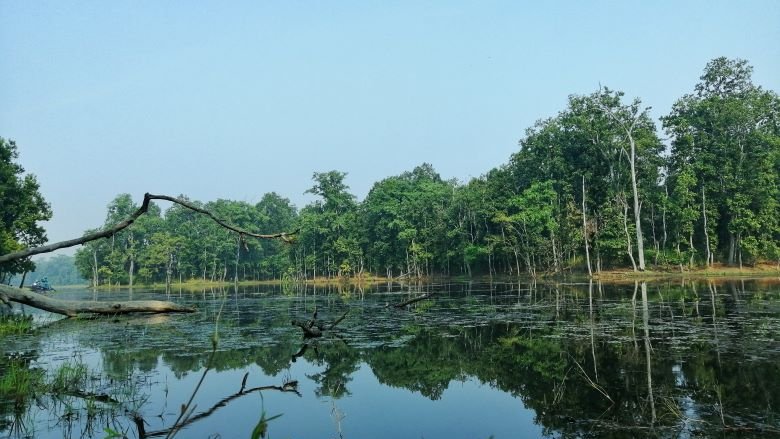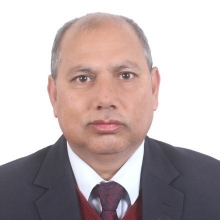Challenge
Protected areas (PAs) are key to global efforts to conserve biodiversity. While governments see PAs as a conservation tool, they are often overlooked in economic development plans and recovery strategies. This results in limited financing of PAs and degradation of ecosystems that people depend upon, even though PAs not only conserve biodiversity, but also generate significant livelihoods for local communities and economies through nature-based tourism – a strong lever for countries to achieve their development goals while promoting conservation. However, there is limited recognition and understanding of the economic benefits of protected area tourism or its potential contribution to green recovery strategies.
Approach
The World Bank has supported countries to promote inclusive and sustainable tourism by protecting their natural assets, growing and diversifying business opportunities, and sharing benefits with local communities. To deepen knowledge of the economic impact of PAs through sustainable tourism, the World Bank developed a rigorous economic assessment methodology using computable general equilibrium (CGE) models in local economies to measure economic impact in terms of income multipliers and jobs created. The World Bank then carried out assessments in Brazil, Fiji, Nepal, and Zambia that generated evidence that investing in PAs is good for conservation and sustainable development. This evidence has applications for tourism in marine and terrestrial PAs, and other natural resource management areas, and was shared with policymakers including via three country reports (Brazil, Nepal, and Zambia). Clients were also closely involved in the development of the reports, including site selection, informing methodology design, providing access to data, facilitating field work. Consultations were held with clients to get feedback on draft results, ahead of report finalization.
Results
Economic impact of tourism quantified in five PAs in Brazil, Fiji, Nepal, and Zambia. Results were well received by stakeholders and governments and are being used to catalyze policy reforms and future investment in PAs and sustainable tourism. Results informed policy dialogue, project design and raised the profile of nature-based tourism to promote local economic development and generate conservation finance. Results show for every dollar invested in PAs, the economic rate of return is at least six times the original investment. The study informed the design of the pipeline Green, Resilient and Transformational Tourism Development Project in Zambia, which will invest in landscapes, including PAs, and tourism development for local development. The result of the study is being used to identify project sites, and to broaden the scope of the project to include policy and institutional reforms, specifically related to concession policies and capacity of park managers to oversee tourism operations. The study is informing a policy track on concession policy reform in the upcoming First Nepal Green, Resilient and Inclusive Programmatic Development Policy Credit to promote private sector participation and encourage responsible investments in tourism. In addition, in Argentina, the pipeline Sustainable Recovery of Landscapes and Livelihoods in Argentina Project aims to improve the management and resilience of ecosystems and related livelihoods (including nature-based tourism) of local communities in selected conservation and production landscapes and seascapes. Findings from this study and related products and webinars were used by the team to build a new engagement with the government on this topic.
- Presentations at five virtual events helped increase awareness of WB staff, clients, and wider global conservation audience (>500 participants).
- Partnerships with local universities in four countries trained over 70 students in survey and data collection, at least half of whom were women, building local capacity to carry out analysis of ecological and economic dynamics in the PAs.
World Bank Group Contribution
The project received funding from PROBLUE Trust Fund (TF) ($450,000), the PROFOR Trust Fund ($125,000), the Wealth Accounting and the Valuation of Ecosystem Services (WAVES) TF ($125,000), and the GEF-financed Global Wildlife Program TF ($100,000).
Partners
The World Bank strategically organized partnerships to ensure that the results were robust, and the outreach would be effective. The methodology was developed in partnership with the University of California, Davis, and implemented in the pilot countries by national government institutions, academic institutions and NGOs. The government agencies provided technical expertise and helped determine the scope of the work. Students from universities in each of the countries were trained in data collection and surveying. NGOs played an advisory role and supported in-country logistics. In Brazil, the team partnered with the Brazilian Ministry of Environment, the Abrolhos Marine National Park Management Authority. University of Rio de Janeiro, and Conservation International. In Fiji, the team engaged the Ministry of Fisheries, Mamanuca Environment Society and the University of South Pacific. In Nepal, the team worked with the Government of Nepal, National Trust for Nature Conservation, and the Kathmandu University. In Zambia, the team partnered with the Department of National Parks and Wildlife, Government of Zambia; Global partners who supported the design, development and dissemination of the report include- International Union for Conservation of Nature (IUCN) and the United States National Park Service.
Looking Ahead
Further technical support for governments and country teams to integrate nature-based tourism into their development agenda is being provided through a Phase 2 PASA, Economics of Nature-Based Tourism, helping increase the accessibility of the methodology, generate and share critical knowledge on nature-based tourism to strengthen project design and implementation, and influence dialogue with client countries. The methodology will be further applied to quantify and demonstrate the value of investing in PAs and nature-based tourism for development and conservation objectives and to inform upcoming operations.
Last Updated: Jun 02, 2023

